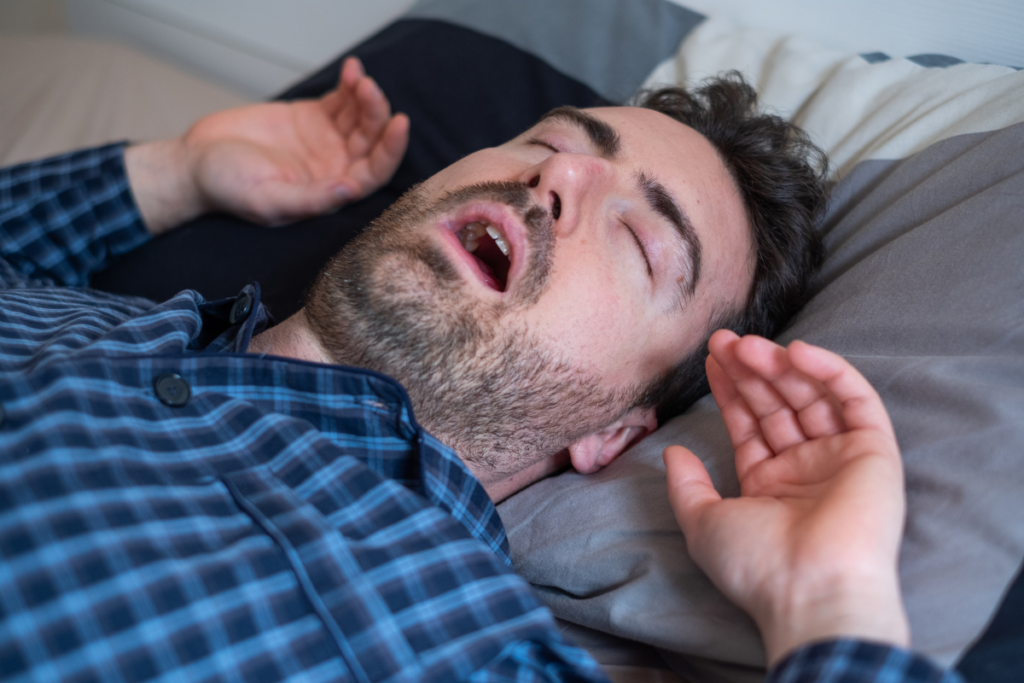Sleep Tips: How to sleep better with sleep apnea?

Sleep apnea, which is characterized by pauses in breathing while sleeping, can hurt the quality of one’s sleep and can lead to other health problems such as high blood pressure and diabetes. More importantly, it leads to a decrease in memory and brain performance; this could lead to drowsiness throughout the day. Viewing that sleep apnea can be a big problem, these tips can help you manage your sleep, no matter how severe your condition is.
Change Sleeping Position
You should never sleep on your back when you have sleep apnea. If the problem is severe then sleeping on your side may also be a bad idea. If you are aware of your apnea problem and you want to work on improving it, then it is better to wear a CPAP mask while sleeping. The CPAP machine will not only help you breathe but will also decrease the chances of getting a headache during the day because of a lack of oxygen supply to the brain.
Changing sleeping positions is not that easy to do overnight, but with practice, you will be able to get used to sleeping in a different position. If you are unable to sleep in a different position, then you can try a CPAP mask instead.
Invest in the Right Pillow
Using the wrong pillow–such as one that is too hard or too soft for your liking– can affect your sleep quality. Some people with sleep apnea and other breathing problems are advised to buy bamboo hybrid pillows to enable them to sleep on their side. This can be difficult for some because a hard pillow, especially when placed under the neck, can cause stiffness in the neck and spine. A softer pillow, on the other hand, will not support your neck enough; which could lead to discomfort over time.
Lose Weight
People with sleep apnea often do not realize that they are overweight. If you are overweight and have sleep apnea, then losing weight can help improve the quality of your sleep. Overeating and the resulting weight gain will increase the chance of getting sleep apnea. Weight loss can help you reduce high blood pressure, and high cholesterol levels, and it can even help prevent some forms of cancer.
Consume Less Alcohol and Caffeine
Alcohol and caffeine can make your sleep very restless, which leads to breathing pauses. According to recent research, alcohol increases the chances of developing sleep apnea by at least four times in men. It can also disrupt your regular sleeping pattern. In such a situation, if you consume caffeine before going to bed, then it can further worsen your sleep quality as it will make you more restless. Alcohol and caffeine also dehydrate your body, making it difficult for you to get a good night’s sleep. If you are not used to consuming alcohol and caffeine, then it is better to start cutting them out from your diet.
Stop Smoking
Smoking is a habit that has been passed on for generations, but it can hurt your sleep. Cigarette smoke contributes to sleep apnea, which is why most smokers will notice their breathing becoming shallow while they are sleeping. Drinking alcohol while smoking can also make it difficult for you to get a good night’s sleep. It is therefore necessary that you quit smoking and drinking alcohol completely if you want to get better sleep. Smoking and drinking alcohol also contribute to a decrease in memory and brain performance; if you are not able to get a night of good sleep it will be difficult for you to work or study well.
Consume More Sleep-Promoting Foods
Not being able to get a good night’s sleep can be frustrating and can lead you to depression. The lack of quality sleep due to sleeping disorder which is mostly caused by snoring symptoms or breathing pauses while sleeping can negatively affect the brain. You should listen to your body and give it the sleep that it needs. If you are having a hard time sleeping, consume foods that promote sound sleep such as omega-3, and try to avoid those foods related to insomnia such as chocolate or caffeine.
Exercise Regularly
People with sleep apnea are often overweight because they tend to eat more than normal. Losing weight will not only improve the quality of your sleep but will also decrease your chances of other health complications. The small amount of exercise that you get every day can increase your cardiovascular endurance and oxygen supply in your body and will lower the chances of heart diseases, diabetes, and even cancer.
Sleep apnea is a big problem and can lead to a lot of additional health problems, especially if it is not properly managed. You should start taking sleep seriously as it can help you improve your health as well as decrease the risks of high blood pressure, high cholesterol, and even diabetes. By applying the above tips, you can improve the quality of your sleep and lead a healthy life.